



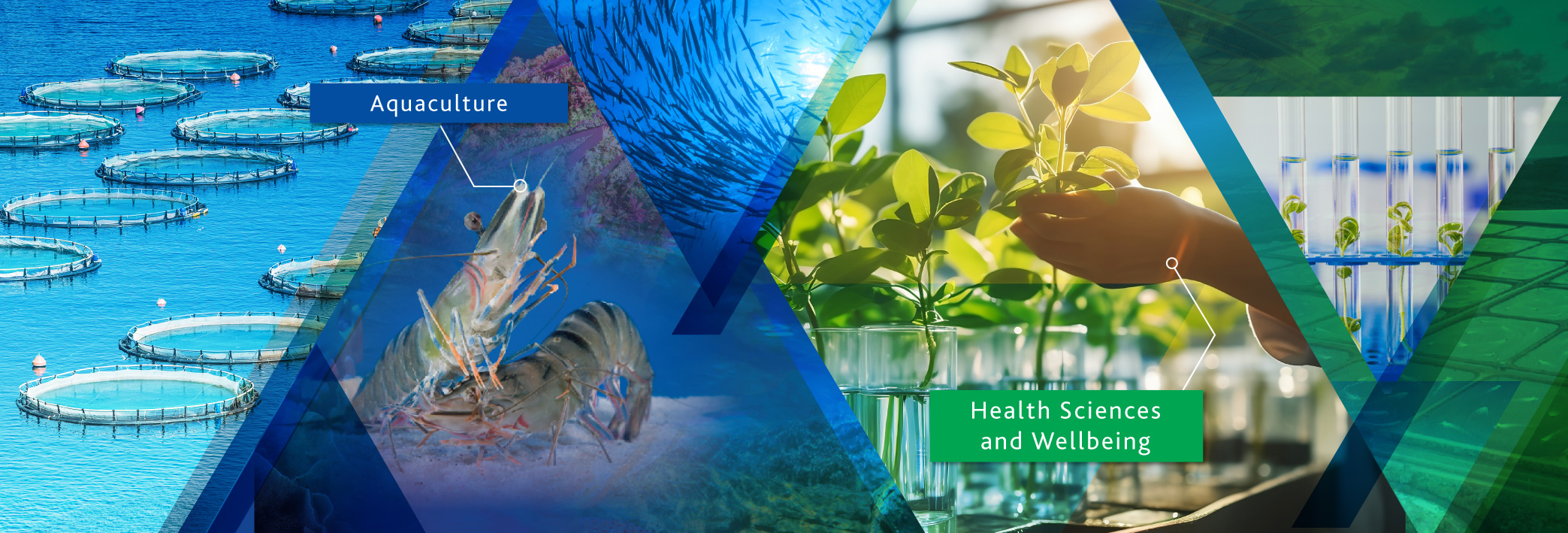

Dr Domingos’s research focuses on the development of efficient selective breeding programs for tropical aquaculture species. This involves the understanding and manipulation of endogenous and environmental factors affecting gonadal development and broodstock conditioning within appropriate maturation systems for reliable spawnings. Jose is particularly interested to boost farm productivity by developing fast growing and disease resistant strains through the use of cutting-edge genomic tools and quantitative genetics as a means to achieve sustainability and profitability of aquaculture in the tropics.
Jose has a long involvement with commercial aquaculture operations; prior to becoming an academic he managed over 700 hectares of prawn farming in Brazil. Trained in Brazil (Oceanography, FURG; MSc. Aquaculture, UFSC) and Australia (PhD Aquaculture Genetics, JCU), Jose has 20 years of combined industry, government and academic background. As a member of our JCU Singapore Aquaculture Research team, Jose is excited about creating a brighter future for life in the tropics through applied R&D projects and training MSc and PhD students in discoveries that make a difference.

Dr Susan Gibson-Kueh did her BVSc at Sydney University, MSc at the Institute of Aquaculture, Stirling University and her PhD on ‘Diseases of Asian seabass or barramundi, Lates calcarifer Bloch’ at Murdoch University, in Australia. Her expertise is in the study of complex diseases in aquaculture based on classical veterinary pathology. One of her earlier roles was as Head of the Aquatic Animal Health Laboratory, AgriFood and Veterinary Authority of Singapore for over a decade. Dr Gibson-Kueh published the first reports of two important diseases of Asian seabass or barramundi, scale drop and big belly. Her current research is focused on the translation of an in-depth knowledge of gaps in aquatic animal health in aquaculture to her research goals. She believes that the key to successful management of diseases lies in advancing current applied knowledge on fish physiology, immunology and gene expression. She is passionate about promoting livelihoods to empower remote communities through quality education, in line with UN sustainable development goals to alleviate poverty.
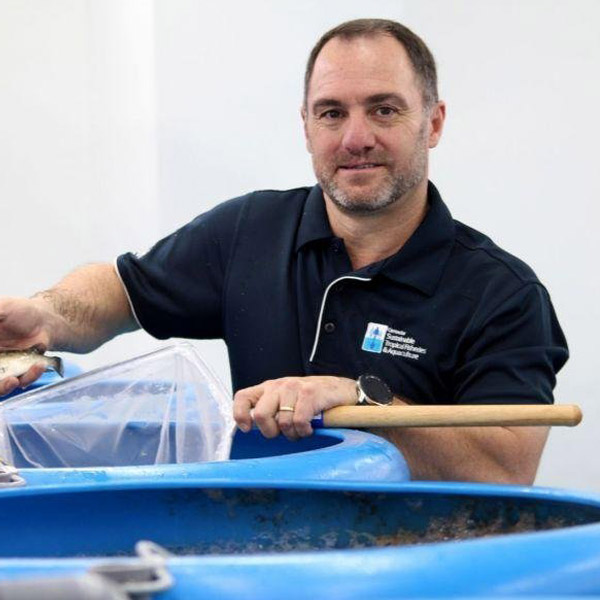
Prof Jerry has worked with aquaculture species for 15 years and the genetics of aquatic organisms for 20. Since joining James Cook University in 2003, he has built an internationally recognised research group with a major focus on the development of genetic tools and knowledge to inform selective breeding programs for aquaculture species.
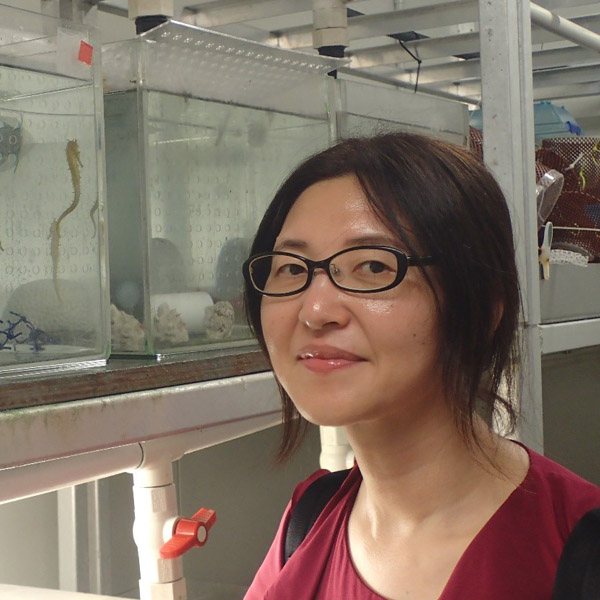
Dr Shen’s research focus is on the development of “robust” aquaculture strains to boost seafood production. She has conducted genomics-assisted selection on two economically important fish, namely Asian seabass/barramundi and Mozambique tilapia, and also the ornamental fish, Asian arowana. Specific areas of her research interest include the development and application of new genomic resources and genetic tools for selective breeding; and elucidation of the genetic basis underlying commercially important traits such as disease resistance, fast growth, and adaption to various environmental stressors through deep RNA sequencing, QTL mapping, whole genome association studies (GWAS) as well as genomic selection (GS).
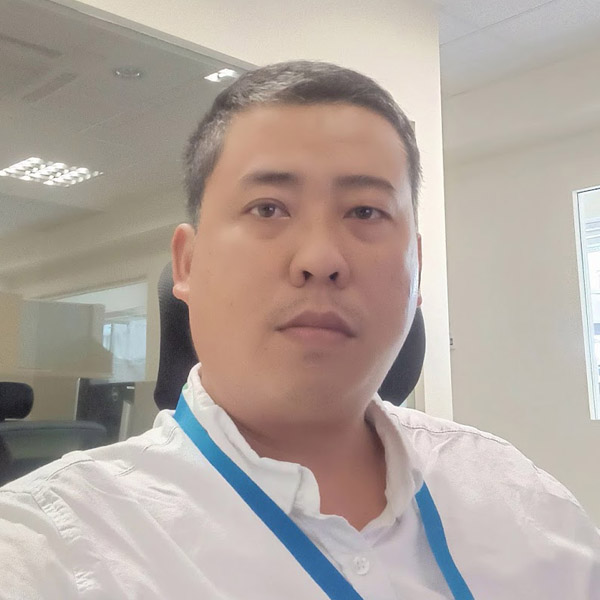
Dr Vu had experiences working with some important brackish and freshwater aquaculture species in Vietnam for over 15 years, including giant freshwater prawn, tilapia and striped catfish breeding programs to improve growth and survival. He graduated BSc of Biotechnology in Vietnam and Master of Aquaculture Sciences in Norway. After graduated from University of the Sunshine Coast for his PhD degree in late 2021, he then joined James Cook University in Singapore to tackle on improving productivity of Singaporean aquaculture species, e.g., barramundi and red snapper. His background are quantitative genetics and modern genomics approaches for routine genetic assessment, population genomics, genomic prediction and selection. His interests are to using the combination of traditional genetics together with the genomic information for providing answer to current industry issues.
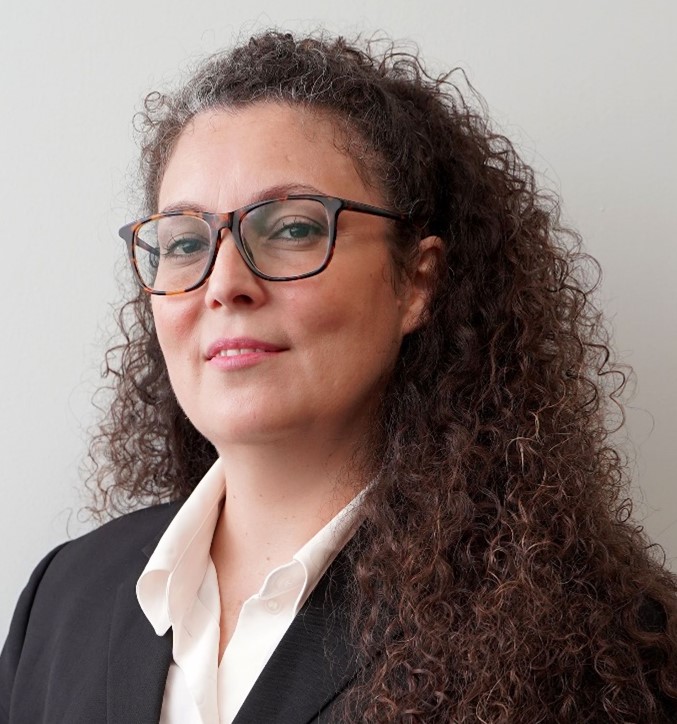
Dr. Carrai’s research is on commercially important viral diseases in aquaculture, with a particular focus on Scale Drop Disease Virus (SDDV) in Asian seabass/barramundi (Lates calcarifer). Her research will contribute towards understanding the genetic basis of resistance to SDDV and in the selection for disease resistant strains. Dr. Carrai is an experienced molecular biologist with a Ph.D. in Microbiology and Genetics from the University of Pisa. Dr. Carrai worked for Sydney University, helping to discover a new papillomavirus strain in the cat, named Felis catus papillomavirus 6 (FcaPV6). Moreover, she was employed as a Research Associate at The Centre for Applied One Health Research and Policy Advice (OHRP), at the City University of Hong Kong, where she contributed to the introduction of advanced health management tools for enhanced pig production, product safety and quality in Hong Kong.
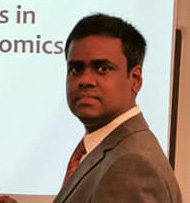
Dr Purushothaman Kathiresan is a scientist with over 15 years’ experience in proteomics genomics, transcriptomics, nutrigenomics, fish immunology, feed development, developmental biology, biodiversity, fish diseases, fish pathology, fish anatomy, fish parasitology and functional characterization of protein abundant & gene expression. He has worked on different organisms such as human, fishes (Asian seabass, Atlantic Salmon, Tilapia, Carps, Zebrafish, Red Snapper), chicken, pig, and yeast.
Purush developed two procedures to understand how the human immune system defends against viruses. Also, he developed a new deyolking protocol which improves both qualitative and quantitative proteome analyses and provides an innovative tool in molecular embryogenesis of polylecithal animals, such as fish, amphibians, reptiles, or birds. He is the first person to profile the proteome of early development (pre-MZT) of zebrafish embryos. Purush has worked at various institutes across the world in Sweden, Singapore, Norway, India, and the Maldives. He has also been instrumental in building a collaboration between research institutes in Singapore, Australia and Norway.
Purush is currently working on improving productivity of Singaporean food fish species such as the Asian seabass and Red Snapper and Norwegian fish such as Atlantic Salmon and Atlantic Cod for key aquaculture traits such as growth, sex determination, and disease resistance.
If you would like to learn more about Dr Purushothaman’s work, please visit: https://scholar.google.com.sg/citations?user=oRnK6AsAAAAJ&hl=en https://www.researchgate.net/profile/Purushothaman-Kathiresan

Associate Professor Jiun-Yan Loh (known as James) has dedicated over 15 years to the field of fish nutrition. Before his academic pursuits, James gained invaluable experience in the aquaculture feed industry and worked hands-on in various fish and shrimp farms. He holds a PhD from Monash University, Australia, specializing in fish nutrition, pre-and probiotics.
Assoc. Professor Loh’s research interests encompass a range of topics, including the substitution of alternative protein sources with insect meals and exploration of prebiotics, probiotics, and immunostimulants in aquaculture species. His work has garnered international recognition, with James securing several research grants and industry consultancy funding. He has published his research findings in prestigious journals such as Fish and Shellfish Immunology, Animal Feed Science and Technology, and Frontiers in Immunology. He has also contributed to book chapters published by Academic Press, Elsevier, and Springer. In addition, his innovative green aquaculture feeds have received several accolades at technology expos, and some of his innovations have been granted patents.
Beyond his research endeavours, Assoc. Professor Loh actively engages with the industry, serving as an industry advisor and contributing as a visiting professor to institutions in China and Indonesia.
He is keen to hear from companies and institutions who are interested in undertaking R&D relevant to nutrition and aquafeed development, immunostimulants or novel ingredients in diets.

Trained in Brazil (BSc. Aquaculture Engineering and MSc. Aquaculture, UFSC; PhD. Science, Biological Oceanography, USP), Dr Yasumaru has 10 years of experience in the field of aquaculture nutrition. She has worked on the in vitro digestion of proteins in feeds for marine shrimp, tilapia, rainbow trout and cobia. She also studied feeds and nutrition of Asian sea bass and mud crab after moving to Singapore 5 years ago. Her research interest also includes new sources of ingredients such as insect meal and single-cell protein, finding the balance between their costs and benefits. Additionally, close to her heart is educating the public about the health benefits of eating fish and seafood (including aquatic plants), and supporting social, economic, and environmental aquaculture practices to contribute to food security.